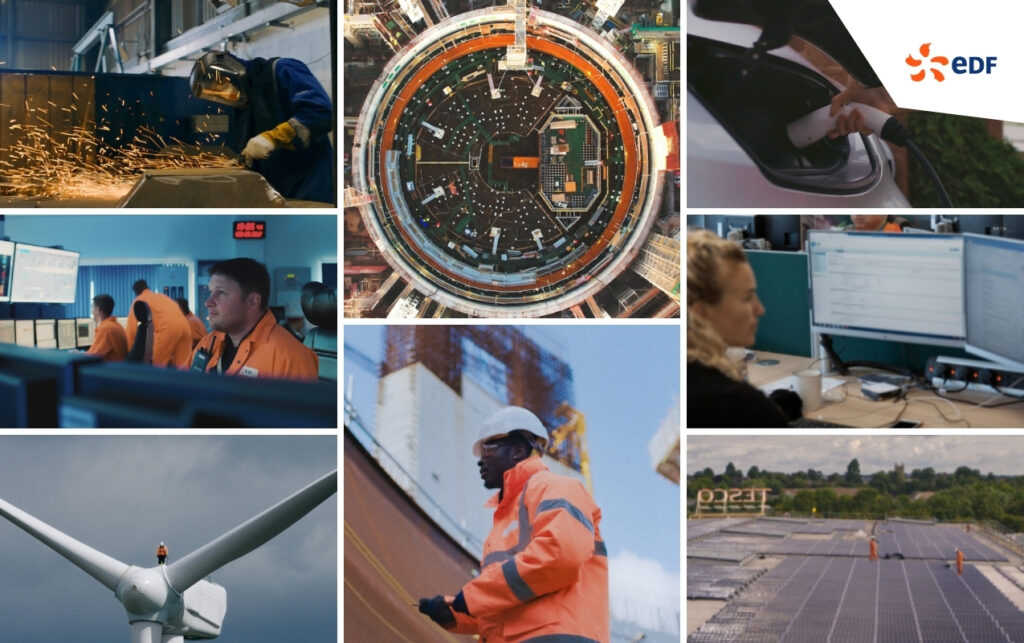EDF has recorded what it has described as “solid” financial results as its renewable generation has soared by 6.3%.
Reporting its results today (18 February), the French energy giant revealed its EBITDA stood at €16,174 million (£14,016 million), an organic change of -2.7%.
This figure has been impacted by COVID-19, with the areas that felt it most keenly being nuclear in France (-€0.7 billion), power consumption reduction associated with a slowdown in projects and services deployment with customers (-€0.6 billion), as well as a decline in distributed volumes and grid connection works affecting distribution businesses (-€0.2 billion). The firm outlined how if these effects of COVID-19 were excluded, EBITDA would have in fact increased by 6.2%.
However, despite the pandemic having “affected all parts of the business”, EDF Renewables managed to record an output of 15.4TWh, up by 6.3% on the previous year. This was bolstered by new commissions in 2019 in the United States, Canada, India and France and in 2020 in France, Israel and Brazil, the company said.
It comes as EDF also celebrates its new build ambitions, with the total renewables capacity under construction at the end of 2020 coming to 8GW – which EDF said is a record for the company. This is split into 3.9GW of solar power, 2.5GW of onshore wind and 1.6GW of offshore wind. Meanwhile, the projects pipeline stood at 60GW at the end of the year, a figure which EDF said is a “significant level underpinning future growth”.
EDF Renewables’ revenue also grew, jumping by 7.6% in organic terms to €1,582 million (£1,371 million). However, EBITDA amounted to €848 million (£735 million), with this being down -23.0% in organic terms compared to 2019.
Jean-Bernard Lévy, chairman and chief executive officer of EDF, said that COVID-19 has provided “tangible evidence of the EDF’ Group’s resilience in both operational and financial terms”.
He said that despite the “unprecedented recession” the company had delivered “solid” results, going on to state that 2020 will be remembered as the year EDF set “ambitious climate targets that have placed us on the path towards carbon neutrality”.
Alongside its commitment to renewables, EDF also hailed its achievements in the rollout of electric vehicle (EV) chargers over the year, pointing to its acquisition of Pod Point, which it said represented close to 90,000 chargepoints at end-2020.
Indeed, EDF said there were over 100,000 chargepoints rolled out at end-2020, 10 times more than at end-2019, and 5,000 smart-chargepoints installed by the Group.
When it comes to the UK specifically, EBITDA for 2020 was £712 million – a 3% growth vs. 2019 – with this driven by higher nuclear prices as well as improvements in its residential performance helping to offset lower nuclear volumes (-5.3TWh) and COVID-19 impacts.
It did outline, however, how lower electricity usage volumes among business customers as a result of COVID-19 and the increase of bad debt provision resulted in an EBITDA impact of -£160 million.
And while EDF did see its residential accounts dip to 4.8 million from 5 million, the company said that this doesn’t include it being selected to take on Green Network Energy’s customers following the latter’s collapse in early 2021.






